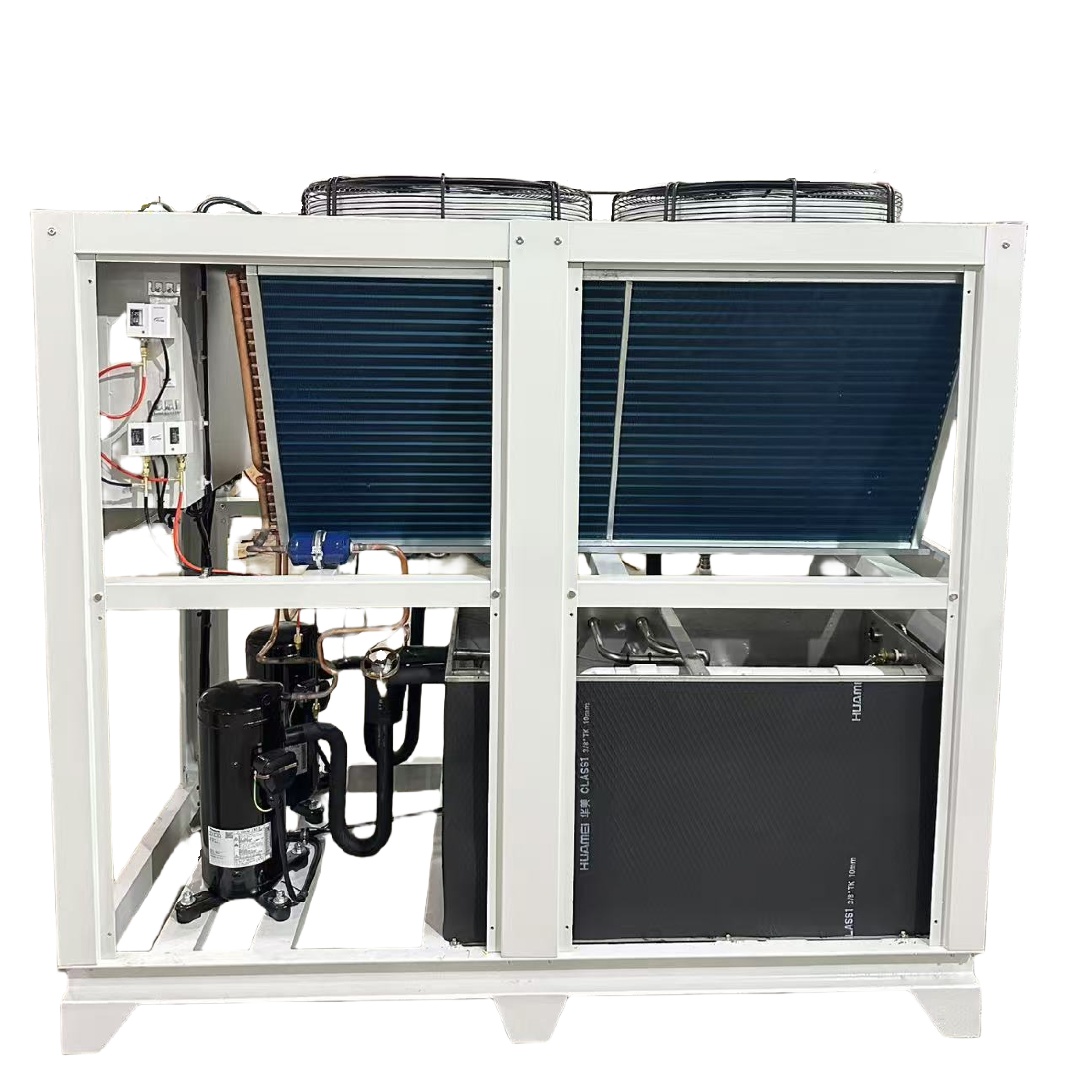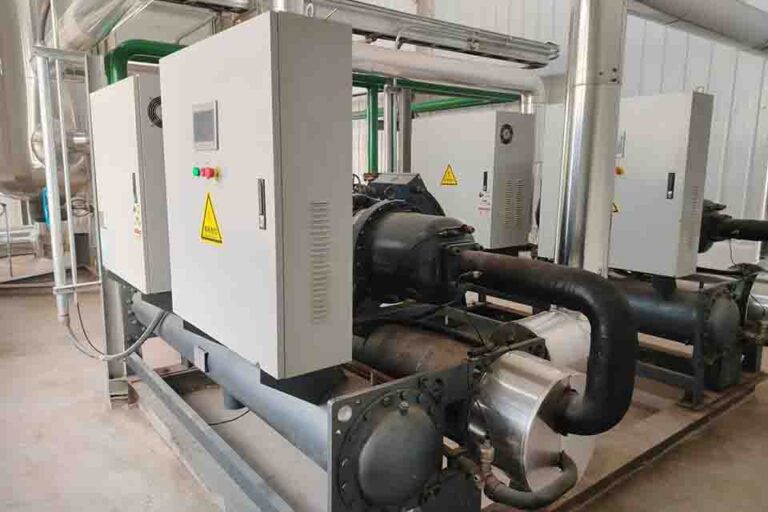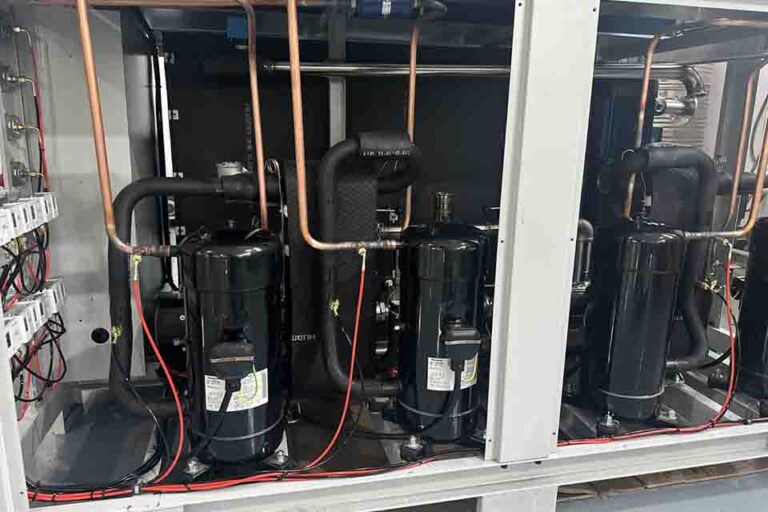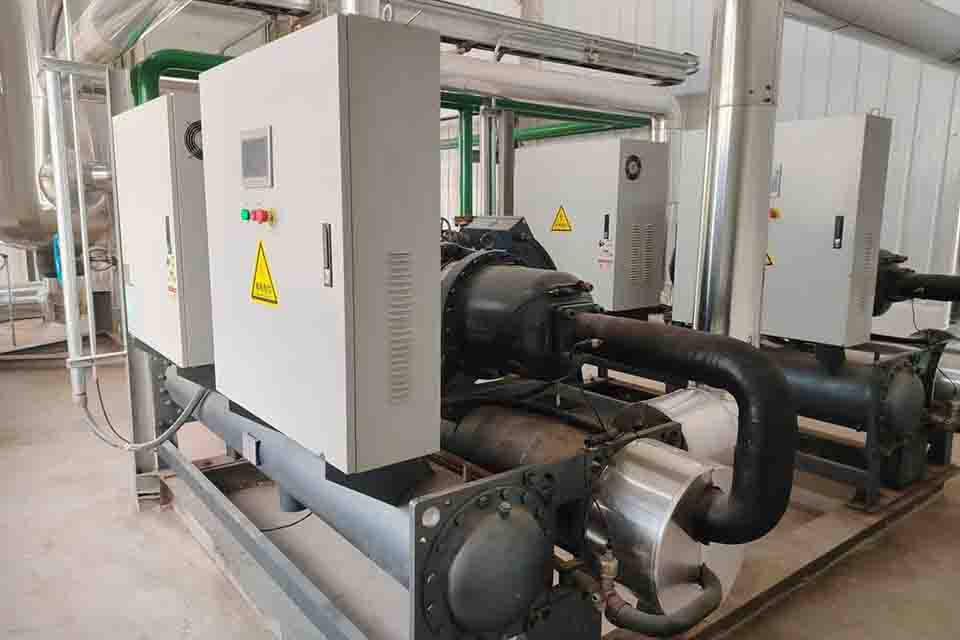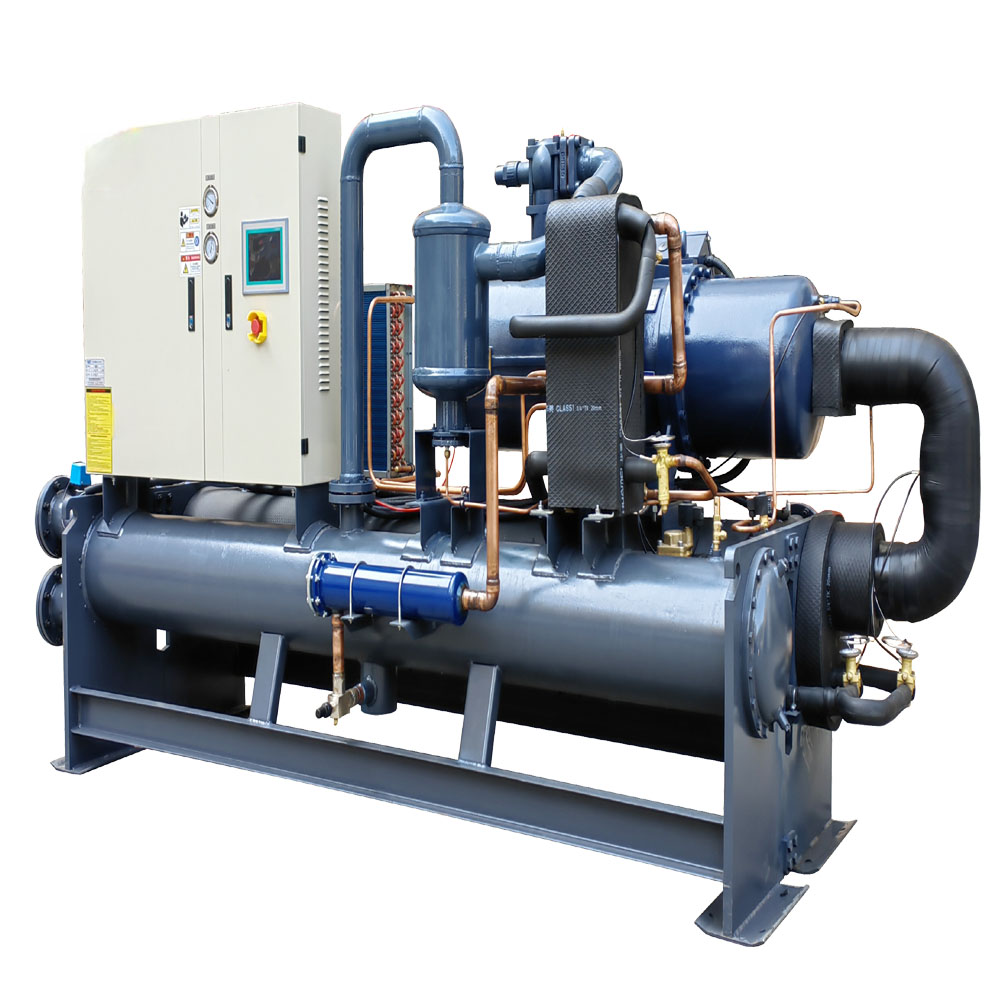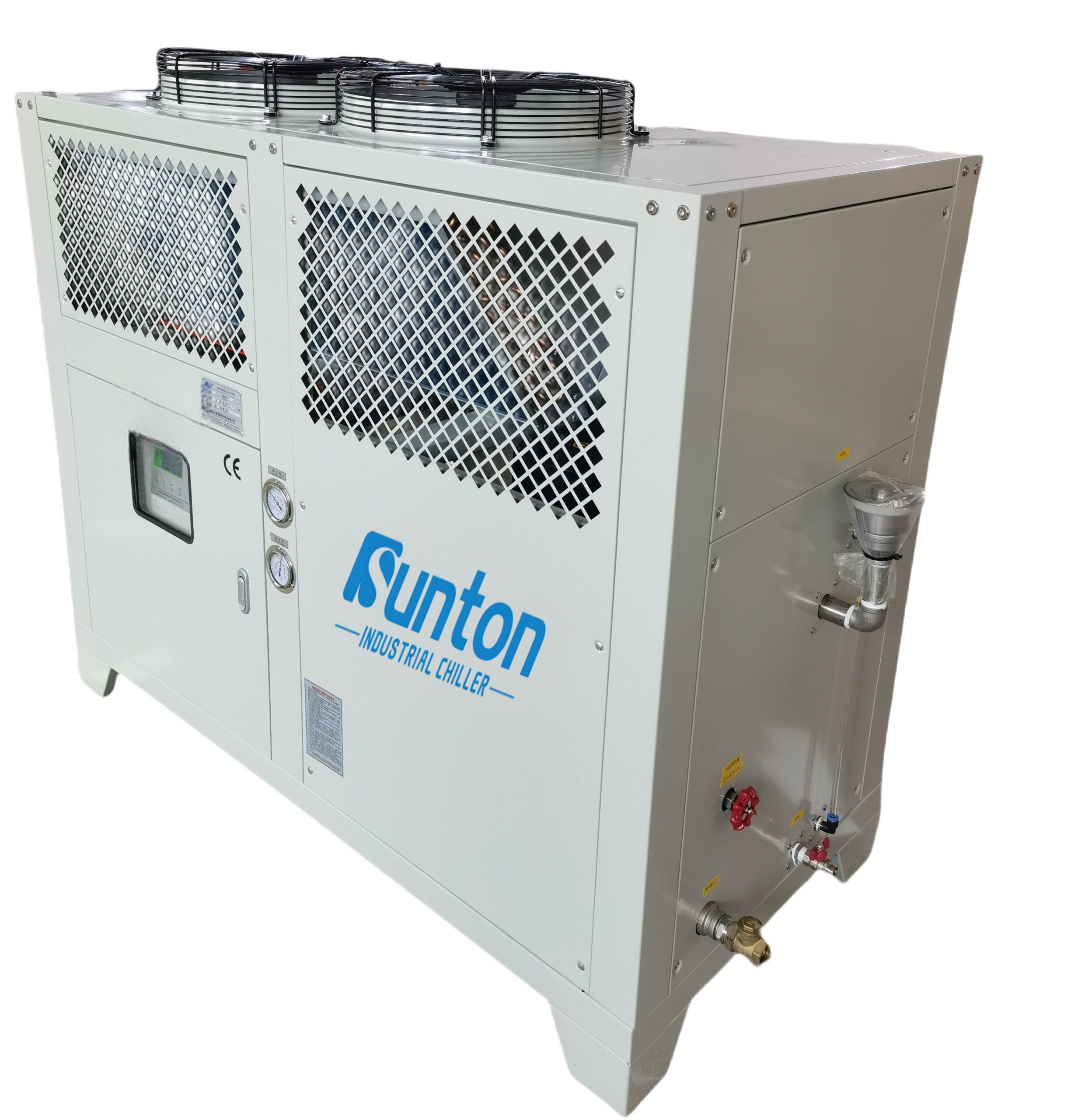-
Dalingshan Industrieel Guangdong
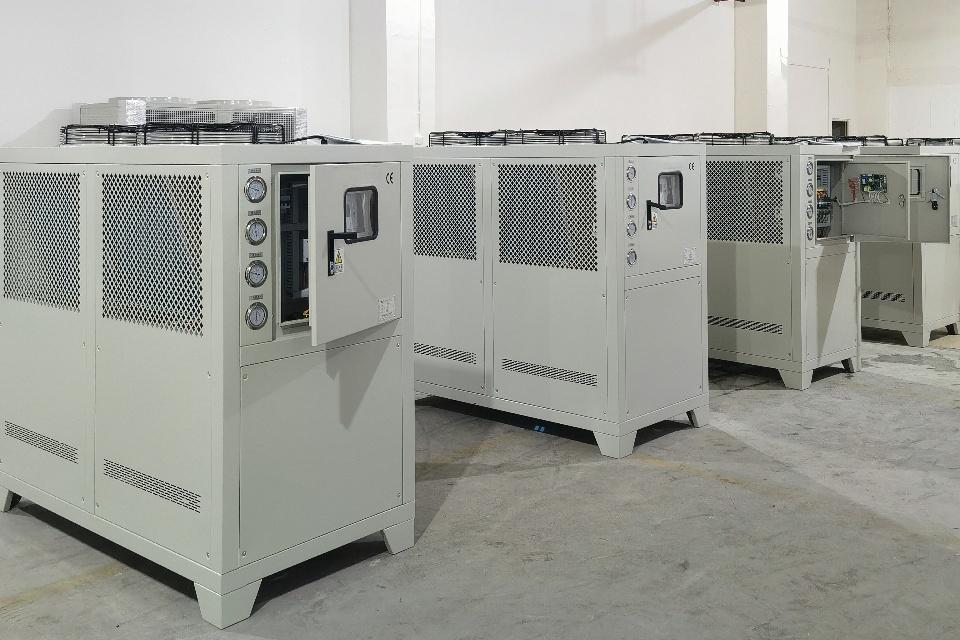
the complete guide to commercial chiller repair | parts tools & accessories
Expert Guide to Commercial Chiller Repair and Refrigeration Maintenance
This comprehensive guide provides an in-depth look at commercial chiller en refrigeration systems, covering essential maintenance tips, common repair procedures, and expert advice for ensuring optimal performance. Whether you’re in the Plastics and Rubber Industry, Food and Beverage Industry, or managing a Data Center, understanding the intricacies of your koelsystemen is crucial for minimizing downtime and maximizing efficiency. This article is worth reading because it offers practical, actionable insights based on years of experience in industrial water chiller manufacturing, tailored specifically to your needs. We aim to provide you with a chiller that not only meets your operational requirements but also offers long-term reliability and efficiency, reducing operational costs and enhancing productivity.
Inhoudsopgave
What are the Common Signs Your Chiller Needs Repair?
As an industrial chiller manufacturer, we often encounter businesses facing unexpected chiller issues. Recognizing the early signs of wear in your refrigeration unit can save you from costly repairs and extended downtime. One common sign is unusual noises coming from the chiller. These sounds can indicate problems with the compressor, fan blades, or other moving parts. Another indicator is a decrease in cooling efficiency. If your chiller is not maintaining the desired temperature, it could be due to low koelmiddel levels, a clogged condenser coil, or issues with the evaporator.
Additionally, increased energy consumption can signal that your chiller is working harder than it should. This not only affects your utility bills but also suggests underlying problems that need addressing. Leaks, whether koelmiddel or water, are also critical signs. Refrigerant leaks can severely impact the chiller’s ability to cool, while water leaks can lead to corrosion and damage to other components. As industrial water chiller manufacturing plants, we’ve seen firsthand how early detection and repair can prevent minor issues from becoming major problems. It’s essential to address these signs of wear promptly to maintain optimal chiller operation. It is crucial to use refrigeration parts from reputable suppliers.
Why is Regular Maintenance Crucial for Your Refrigeration Unit?
Gewoon onderhoud is the cornerstone of a reliable refrigeration system. For businesses in the Chemical and Pharmaceutical Industry or the Medical Industry, a well-maintained chiller ensures that sensitive materials and products are stored at the correct temperatures. A comprehensive maintenance program includes inspecting and cleaning the condenser en evaporator coils, checking koelmiddel levels, and ensuring proper wiring and connections.
From our experience, a proactive onderhoud approach reduces the likelihood of unexpected breakdowns. For instance, keeping the condenser coil clean improves warmteoverdracht efficiency and reduces strain on the compressor. Perform routine maintenance tasks such as cleaning filters and checking the chiller pump can also make sure your koelsystemen operate smoothly. By implementing a preventive maintenance program, you can extend the lifespan of your industrial chiller and avoid the expensive and time-consuming repairs associated with neglect. Every commercial chiller owner en water chiller operator should know these principles.
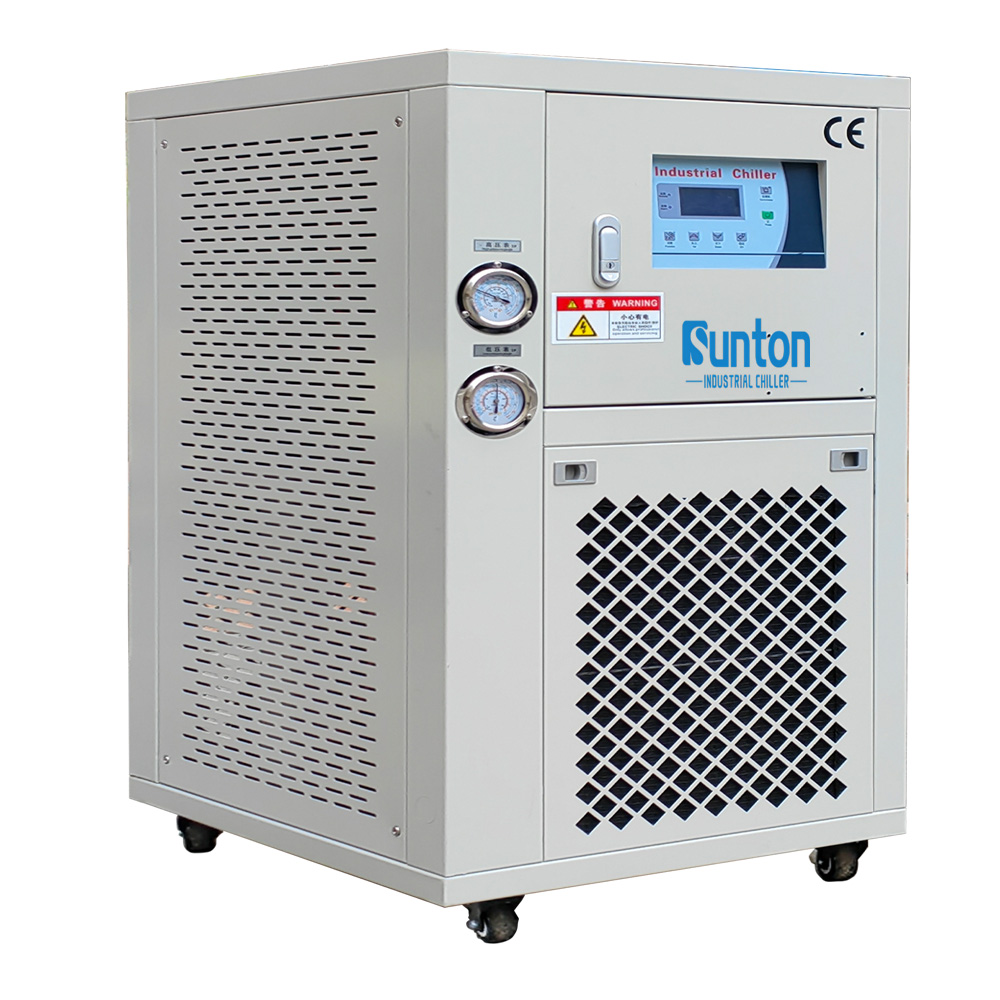
How to Select the Correct Chiller Replacement Parts?
Selecting the right replacement parts for your chiller is critical to maintaining its performance and longevity. As a leading chiller manufacturer, we understand the importance of using high-quality components. When sourcing chiller parts, always consider the specifications provided by the original equipment manufacturer. Using genuine parts ensures compatibility and helps maintain the chiller’s efficiency.
| Part | Function | Signs of Wear |
| Compressor | Circulates refrigerant, increasing its pressure and temperature. | Unusual noises, reduced cooling, increased energy use |
| Condensator | Dissipates heat from the refrigerant, turning it from a gas to a liquid. | Dirty coils, reduced heat transfer |
| Verdamper | Absorbs heat from the process fluid, turning the refrigerant from a liquid to a gas. | Reduced cooling, ice buildup |
| Expansieventiel | Controls the flow of refrigerant into the evaporator. | Fluctuating temperatures, inefficient cooling |
| Fan Blades | Help dissipate heat from the condenser by circulating air. | Noisy operation, reduced airflow |
| Refrigerant | Absorbs and releases heat to cool the process fluid. | Low levels, leaks, reduced cooling |
| Chiller Pump | Circulates the process fluid through the chiller system. | Noisy operation, reduced flow, overheating |
| Heat Exchanger | Transfers heat between the refrigerant and the process fluid. | Reduced heat transfer, leaks |
| Wiring | Connects electrical components, ensuring power supply and control. | Frayed wires, loose connections, electrical faults |
| Glycol | Used as a heat transfer fluid, often mixed with water to prevent freezing. | Low concentration, contamination |
| Condenser Coil | Part of the condenser, aids in heat dissipation by providing a surface for heat exchange. | Dirty coils, corrosion, reduced efficiency |
For example, if you need to replace the compressor, verify the model and specifications to ensure it matches your chiller’s requirements. Similarly, when replacing fan blades or other chiller wear parts, using OEM parts can prevent issues that might arise from using incompatible components. Always refer to your chiller’s documentation or consult with a knowledgeable supplier to make the right choice. A chiller manufacturer should provide detailed guidelines on selecting and installing replacement parts. It is also beneficial to check the piping and other connections during this process.
What are the Key Components of a Chiller and Their Functions?
Understanding the key components of your chiller and their functions is essential for effective maintenance and troubleshooting. The compressor is the heart of the refrigeration system, responsible for circulating the koelmiddel throughout the system. The condenser removes heat from the koelmiddel, turning it from a gas back into a liquid. The evaporator absorbs heat from the process fluid, cooling it down.
Other important components include the expansion valve, which regulates koelmiddel flow, and the chiller pump, which circulates the cooled fluid. Each of these parts plays a crucial role in the chiller’s operation, and a malfunction in any one of them can lead to system inefficiencies or failures. Familiarizing yourself with these components can help you better understand your chiller’s operation and identify potential issues early. For instance, if you notice reduced cooling capacity, the problem could lie in the evaporator or the koelmiddel levels. If you are facing problems with your industrial chillers for hydroponic setup, we may provide assistance.
How Does Ambient Temperature Affect Chiller Operation?
Ambient temperature plays a significant role in the performance of your chiller. High ambient temperatures can reduce the efficiency of the condenser, making it harder for the chiller to dissipate heat. This can lead to increased energy consumption and reduced cooling capacity. Conversely, low ambient temperatures can cause the koelmiddel to become too cold, potentially leading to freezing issues if not properly managed.
Our extensive experience in manufacturing industrial chillers has shown us that proper chiller placement and ventilation are critical in managing the impact of ambient conditions. Ensure that your chiller is installed in a well-ventilated area and that there is adequate space around it for proper airflow. Additionally, consider using a watergekoeld system in environments with consistently high ambient temperatures, as these systems are less affected by external temperature fluctuations. We also offer industrial chillers for concrete batch plant systemen.
What’s the Role of Glycol in Chiller Systems?
Glycol is a critical component in many koelsystemen, particularly those operating in low-temperature environments or used in food-grade applications. It is commonly used as an antifreeze agent, mixed with water to lower the freezing point of the process fluid. This prevents the fluid from freezing inside the chiller, which could cause significant damage to the evaporator and other components.
Using the correct concentration of glycol is vital. Use a refractometer to check the concentration of glycol in your system regularly. The appropriate glycol concentration depends on the specific operating conditions and the lowest expected ambient temperature. We recommend consulting with a chiller expert to determine the optimal glycol mixture for your application. Proper glycol management ensures that your chiller operates efficiently and reliably, even in challenging conditions. Make sure it provides adequate freeze protection to avoid costly repairs.
For instance, in the Plastics and Rubber Industry, maintaining the right glycol levels in your Luchtgekoelde Scroll Water Chiller is crucial. You can read more about it here.
How to Diagnose and Repair Common Chiller Malfunctions?
Diagnosing and repairing chiller malfunctions requires a systematic approach. Start by identifying the symptoms. Is the chiller not cooling properly? Are there unusual noises? Is the energy consumption higher than normal? Once you’ve identified the symptoms, you can begin to narrow down the potential causes.
For example, if the chiller is not cooling adequately, check the koelmiddel levels, inspect the condenser en evaporator coils for dirt or damage, and examine the compressor for any signs of malfunction. Unusual noises might indicate issues with the compressor, fan blades, or other moving parts. Use an ohmmeter to measure the ohm rating for the compressor to check its condition. If you’re unsure how to proceed, consult with a qualified commercial chiller repair technician. They can diagnose and repair the issue efficiently, minimizing downtime and preventing further damage.
If you’re in the Laser Industry, ensuring your chiller is functioning correctly is crucial. Learn more about our solutions for the Laser Industry here.
What are the Best Practices for Chiller Safety and Operation?
Chiller safety is paramount. Always follow the manufacturer’s guidelines for operation and maintenance. Ensure that all personnel operating the chiller are properly trained and understand the safety protocols. Regularly inspect the chiller for any signs of wear or damage, and address any issues promptly.
Proper chiller operation also includes maintaining a clean and organized environment around the chiller. Ensure proper ventilation and airflow to prevent overheating. Regularly check and clean the condenser en evaporator coils, and ensure that the koelmiddel levels are within the recommended range. By adhering to these best practices, you can ensure the safe and efficient operation of your chiller. Always use a licensed HVAC company when needed. Our Shell and Tube Heat Exchanger solutions are designed with safety and efficiency in mind. Read more about them here.
Why Choose Experts at Cold Shot Chillers for Your Industrial Chiller Needs?
Choosing the right partner for your industrial chiller needs is crucial for the success of your operations. As experts at Cold Shot Chillers, we bring decades of experience and a commitment to quality to every project. Our team of skilled technicians is well-versed in all aspects of commercial refrigeration en chiller maintenance and repair.
We offer a comprehensive range of services, from routine maintenance to complex repairs, and we use only the highest quality parts and equipment. Our proactive approach to maintenance helps prevent unexpected breakdowns and extends the lifespan of your chiller. We understand the unique needs of various industries, from the Food and Beverage Industry to Data Centers, and we tailor our services to meet those specific requirements.
Our commitment to customer satisfaction sets us apart. We work closely with our clients to understand their needs and provide customized solutions that deliver optimal performance and efficiency. When you choose us, you’re choosing a partner dedicated to your success. Our expertise in Industriële koelmachines voor textielindustrie is unmatched. Learn more about our specialized solutions here.
How to Request a Quote for Chiller Maintenance and Repair?
Requesting a quote for chiller maintenance and repair is a straightforward process. Simply reach out to us through our website or by phone, and our team will gather the necessary information about your chiller and your specific needs. We’ll ask about the type of chiller, its age, any issues you’re experiencing, and your maintenance history.
Based on this information, we’ll provide you with a detailed quote outlining the scope of work, the parts required, and the estimated cost. We pride ourselves on transparency and will ensure you have a clear understanding of the work to be done and the associated costs. Our goal is to provide you with a solution that meets your needs and budget while ensuring the long-term reliability of your chiller.
For clients in the Food and Beverage Industry, we offer specialized solutions like our Zuivel Melkkoeltanks. Find out more here.
FAQs
What are the most common causes of chiller malfunctions?
Common causes include low koelmiddel levels, dirty or clogged condenser en evaporator coils, compressor issues, and electrical problems. Regular onderhoud can help prevent many of these issues.
How often should I have my chiller serviced?
We recommend at least annual onderhoud for most koelsystemen. However, the frequency may vary depending on the specific application and operating conditions. Use a voltmeter to record incoming voltages to ensure they are correct.
Can I perform chiller maintenance myself?
While some basic tasks like cleaning filters can be done by facility staff, more complex maintenance and repairs should be performed by qualified technicians to ensure safety and effectiveness. You can use an assortment of hand tools for minor tasks.
What should I do if my chiller is making unusual noises?
Unusual noises can indicate a variety of issues, from loose fan blades to compressor problems. Turn off the chiller and contact a qualified technician to diagnose and repair the issue.
How do I know if my chiller needs refrigerant?
Signs that your chiller may need koelmiddel include reduced cooling capacity, longer run times, and ice buildup on the evaporator coils. A technician can measure the koelmiddel levels and recharge the system if necessary.
What is the role of the heat exchanger in a chiller system?
De heat exchanger transfers heat between the koelmiddel and the process fluid, allowing the chiller to cool the fluid efficiently. Proper maintenance of the heat exchanger is crucial for optimal chiller performance
Summary
- Regular maintenance is essential for the reliable operation of your chiller.
- Early detection of issues can prevent costly repairs and downtime.
- Using genuine replacement parts ensures compatibility and performance.
- Understanding the key components of your chiller can help you troubleshoot issues.
- Ambient temperature and glycol concentration significantly impact chiller operation.
- Partnering with experienced professionals ensures the best care for your industrial chiller.
For those in the Printing Industry, we also provide tailored solutions to meet your specific needs. Discover more about our Anti-explosie koelers here.
